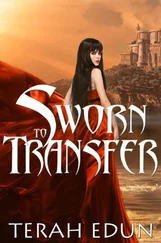'The royal huntsman is always invited and gets an honoured place,' Edgar said to me. 'And so he should - he provides the best of the festival food. As my assistant, Thorgils, you're expected to be there as well. Make sure you're suitably dressed.'
So it was that I found myself at the door of the burh's great hall five days later, wearing my purple tunic, which had been freshly cleaned by Edgar's wife, Judith. I was having difficulty in controlling my excitement. Aelfgifu must surely be at the banquet, I thought to myself.
'Who's going to be at the high table?' I asked a fellow guest as we waited for the horn blast to signal that we could enter the hall.
'Ealdorman Aelfhelm is the official host,'he replied.
'Is he Aelfgifu's father?' 'No. Her father was executed by that fool Ethelred on suspicion of disloyalty long before Knut came to power. Aelfhelm is her uncle. He has an old-fashioned view of how to conduct a banquet so I expect Aelfgifu will be a cupbearer.'
When the blaedhorn sounded, we filed into the great hall to
find our places. I had been allocated to sit at a long table facing towards the centre of the hall, which had been left clear for the servitors who brought our food and for the entertainment to follow. A similar long table had been placed on the far side, and to my right, raised up on a platform, was the table at which ealdorman Aelfhelm and his important guests would dine. Our humbler board was set with wooden plates, mugs and cowhorn spoons, but the ealdorman's guests had an embroidered linen tablecloth and their drinking vessels were expensive imports, goblets of green glass. We lesser folk had just taken our places when another horn blast announced the entry of the ealdorman. He came in with his wife and a cluster of nobles. Most were Saxons, but among them I noticed Gisli and Kjartan, wearing their gold-hiked huscarl swords and looking much more dignified than the green-clad hunters I had accompanied five days earlier. Still there was no sign of Aelfgifu.
The ealdorman and his party took their seats along one side of the high table, looking down at us. Then came a third horn blast, and from the left-hand side of the hall appeared a small procession of women. Leading them was Aelfgifu. I recognised her at once and felt a surge of pride. She had chosen to wear the same close-fitting sky-blue dress in which I had first seen her at Knut's Easter assembly in London. Then her long hair had hung loose, held with a single gold fillet. Now her hair was coiled up on her head, to reveal the slender white neck I remembered so well. I could not keep my eyes from her. She walked forward at the head of the procession, looking demurely down at the ground and holding a silver jug. Stepping up to her uncle's table, she filled the glass goblet of the chief guest, then her uncle's glass and then the noble next in rank. Judging by the colour of the liquid she poured, their drink was also a luxurious import - red wine. Her formal duty done, Aelfgifu handed the jug to a servant and walked to take her own seat. To my chagrin she was placed at the far end of the high table, and from where I sat my neighbour blocked my line of sight.
The cooks had excelled themselves. Even I, who was used to eating Edgar's game stews, was impressed by the variety and quality of the dishes. There were joints of pork and mutton, rounds of blood sausage and pies and pastes of freshwater fish - pike, perch, eel - with sweet pastries too. We were offered white bread, unlike the everyday rough bread, and of course there was the venison which Edgar had contributed, now brought in ceremonially on iron spits. I tried leaning forward and then back on my bench, attempting to get another glimpse of Aelfgifu. But my immediate neighbour on my right was a big, hulking man - the burh's ironworker as it turned out — and he was soon irritated by my fidgeting.
'Here,' he said, 'settle down and get on with the meal. Not often that you have a chance to eat such fine food —' he belched happily — 'or as much to drink.'
Of course, we were not offered wine, but on the table were heavy bowls made from local clay, which gave a deep grey sheen to the pottery. They contained a drink which I had not tasted before.
'Cider,' commented my burly neighbour as he enthusiastically used a wooden scoop to refill his wooden cup and mine. He had an enormous thirst and throughout the meal gulped cup after cup. I tried to avoid his friendly insistence to keep pace, but it proved difficult, even when I switched to drinking mead flavoured with myrtlewort in the hope that he would leave me alone. The leather mead bottle was in the hands of an overly efficient servant, and every time I put down my cup he topped it up again. Gradually, and for almost the first time in my life, I was getting drunk.
As the banquet progressed, the entertainers came on. A pair of jugglers skipped into the open space between the tables and began throwing batons and balls in the air and doing somersaults. It was uninspiring stuff, so there were catcalls and rude comments, and the jugglers left, looking cross. The audience perked up when the next act came on — a troop of performing dogs. They were dressed in coloured jackets and fancy collars and had been trained to scamper about in patterns, to duck and roll over, to walk on two feet and jump through hoops or over a bar. The audience shouted with approval as the bar rose higher and higher, and threw scraps of meat and chicken into the arena as rewards. Next it was the turn of the ealdorman's scop to come forward. He was the Saxon version of our Norse skald, and his duty was to declaim verses in praise of his lord and compose poems in honour of the chief guest. Remembering my time as an apprentice skald, I listened carefully. But I was not overly impressed. The ealdorman's scop had a mumbling delivery and I thought that his verses were mundane. I suspected they were stock lines which he changed to suit the particular individual at his lord's table, filling in the names of whoever was present that day. When the scop had finished and the final lines of poetry died away, there was an awkward silence.
'Where's the gleeman?' called down the ealdorman, and I saw the steward hurry up to the high table and say something to his master. The steward was looking unhappy.
'The gleeman's probably failed to show,' slurred my neighbour. The cider was making him alternately cantankerous and genial. 'He's become very unreliable. Meant to travel from one festival to another, but often has too much of a hangover to remember his next engagement.'
The steward was heading towards a small crowd of onlookers standing at the back of the hall. They were mostly women, kitchen workers. I saw him approach one young woman at the front of the crowd, take her by the wrist and try to bring her forward. For a moment she resisted and then I saw a harp being passed to her from somewhere at the back of the room. She beckoned to a youth sitting at the far table and he got to his feet. By now an attendant had placed two stools in the middle of the cleared space and the young man and woman - I could see that they were brother and sister - came forward and, after paying their respects to the ealdorman, sat down. The young man produced a bone whistle from his tunic and fingered a few experimental notes.
The crowd fell silent as his sister began to tune her harp. It was different from the harps I had known in Ireland. The Irish instrument is strung with twenty or more wires of bronze, while the harp the girl was holding was lighter, smaller, and had only a dozen strings. When she plucked it I realised it was corded with gut. But the simpler instrument suited her voice, which was pure, untrained and clear. She sang a number of songs, while her brother accompanied her on his whistle. The songs were about love and war and travel, and were plain enough, and no worse for that. The ealdorman and his guests listened for most of the time, only occasionally talking among themselves, and I judged that the stand-in musicians had done well.
Читать дальше








